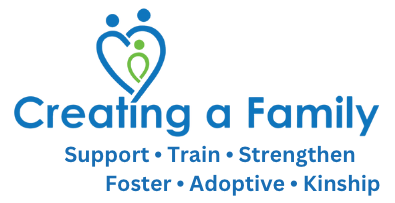The Adoption Tax Credit is not all that complicated to file yourself when doing your annual taxes. The most common tax preparation sites and software can walk you through the Adoption Tax Credit details to maximize your claim. However, if you cannot do your taxes, you might need help finding a tax specialist to file your Adoption Tax Credit claim.
One of our guest experts on this year’s Adoption Tax Credit 2021 podcast offered guidance for finding a tax specialist. This resource will be helpful to families who need support for more complex questions they cannot answer themselves. Often, families have circumstances or expenses that fall outside the ordinary parameters for filing, or their claim for the adoption tax credit gets denied on the first round. Those situations are also times when you might want to consider hiring a tax specialist to help you understand and file for the credits due to you.
The Questions You Should Ask When Seeking Expert Tax Help
Becky Wilmoth is an Enrolled Agent and Adoption Tax Credit Specialist with Bill’s Tax Service in Illinois and a regular on our annual Adoption Tax Credit podcasts. She suggested that when you need to find expert tax help, you should ask at least these four essential questions before handing over your documentation.
1. Are you an enrolled agent through the IRS?
It would be best to look for a tax professional who holds the minimum of an AFSP certification. The “enrolled agent” designation represents the highest level of certification through the IRS and grants agents the right to represent taxpayers before the Internal Revenue Service for tax issues, including audits, collections, and appeals. The IRS website has these three resources to help you find a preparer who will serve your needs best:
- Need Someone to Prepare Your Taxes?
- Topic No. 607 Adoption Credit and Adoption Assistance Programs
- Directory of Federal Tax Return Preparers with Credentials and Select Qualifications
2. How many Adoption Tax Credit returns have you done?
The answer to this question should help you determine the agent’s level of experience with adoption tax credit filings. The answer will also help you know what representation you can expect if your adoption tax credit claims are denied or audited. Don’t be afraid to ask for referrals of families who have used the tax preparer you are considering.
Do you need education credits? Take the Adoption Tax Credit 2021 online course.
3. Are you familiar with the Adoption Tax Credit laws?
Again, enrolled agents have studied tax law extensively and earned the designation to represent clients in specialized areas like the Adoption Tax Credit. Don’t be afraid to ask them how they became familiar with the specific laws around the Adoption Tax Credit.
4. How many cases have you won when the IRS has denied an Adoption Tax Credit claim?
The answer to this question can help you ascertain the agent’s ability to correctly file for your credit and then defend you if you must appeal a denial. Again, don’t hesitate to ask detailed questions about a denial process or the steps to amend or appeal.
You Do Not Need a Local Tax Expert
Keep in mind that while it may be a bit more convenient to use a local tax expert, it is not always necessary. Most tax specialists are comfortable working with clients remotely, whether next door or across the country. Most tax preparers have secure portals to protect your private information.
The Documentation You Must Provide
Whether you prepare your taxes or hire an experienced, knowledgeable tax preparer to file your taxes, there are specific documents you need to provide. The tax preparer will complete Form 8839, “Qualified Adoption Expenses,” and attach the form to your Form 1040 or Form 1040A.
- Final Judgment of Adoption (all adoptions)
- Adoption Assistance Eligibility Determination (Subsidy Agreement) that declares the child to have special needs if claiming credit for a special needs child adoption through the state (foster adoptions)
- A home study/placement agreement completed by an authorized placement agency (all adoptions except foster)
- All documentation of paid qualified expenses. (all adoptions except foster)
- All documents must be signed and dated. (all adoptions) The IRS will not accept any documents (Home study/Placement agreement, Judgment of Adoption, or Subsidy agreement/Eligibility agreement) unless they are signed and dated by the proper authorities.
It’s also essential to remember to keep all these records in a secure, clearly marked file or envelope for seven years after the filing, in case the IRS audits your claim.
Go to our Adoption Tax Credit Headquarters for many more helpful resources on the 2021 Adoption Tax Credit Credit.
Originally published in 2020, Updated, and republished in 2022.
Image Credits: Ivan Radic; lewisr1; WD Store



Thanks for sharing, Helpful post. I really appreciate your post.
Hi,
You’ve outdone yourself this time. This is probably the best, most concise step-by-step guide for adoption tax credit claim. I’ve ever seen on how to build a successful blog.